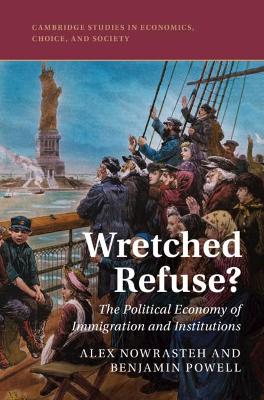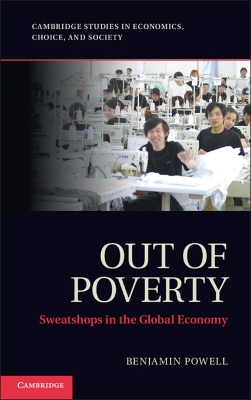Cambridge Studies in Economics, Choice, and Society
2 total works
Economic arguments favoring increased immigration restrictions suggest that immigrants undermine the culture, institutions, and productivity of destination countries. But is this actually true? Nowrasteh and Powell systematically analyze cross-country evidence of potential negative effects caused by immigration relating to economic freedom, corruption, culture, and terrorism. They analyze case studies of mass immigration to the United States, Israel, and Jordan. Their evidence does not support the idea that immigration destroys the institutions responsible for prosperity in the modern world. This nonideological volume makes a qualified case for free immigration and the accompanying prosperity.
This book provides a comprehensive defense of third-world sweatshops. It explains how these sweatshops provide the best available opportunity to workers and how they play an important role in the process of development that eventually leads to better wages and working conditions. Using economic theory, the author argues that much of what the anti-sweatshop movement has agitated for would actually harm the very workers they intend to help by creating less desirable alternatives and undermining the process of development. Nowhere does this book put 'profits' or 'economic efficiency' above people. Improving the welfare of poorer citizens of third world countries is the goal, and the book explores which methods best achieve that goal. Out of Poverty will help readers understand how activists and policy makers can help third world workers.

